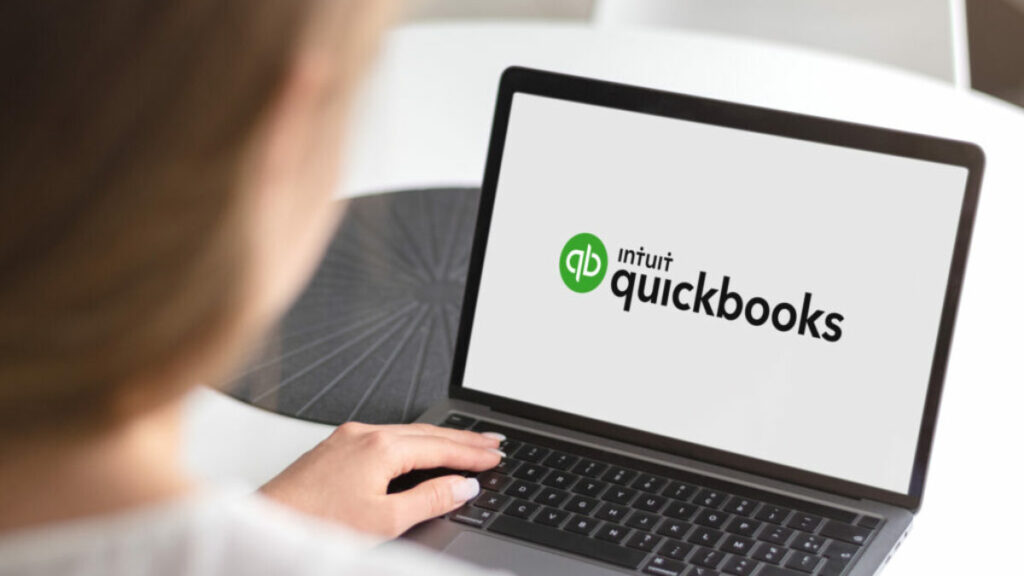Are you torn between QuickBooks Online and QuickBooks Desktop for your business in 2024? The choice between these two popular accounting software options can significantly impact your efficiency and workflow. QuickBooks Online offers cloud-based accessibility, perfect for businesses needing flexibility, while QuickBooks Desktop provides robust features and customization options for those who prefer a traditional approach. Understanding the contrasts between the two versions is crucial in making the right decision for your specific needs. Let’s delve into the key differences to help you determine which platform aligns best with your business goals.
Comparing Features
Desktop Comparison
QuickBooks Desktop offers a one-time purchase option, while QuickBooks Online requires a monthly subscription. The desktop version is known for its robust features, especially in terms of inventory tracking and job costing.
Plan Platforms
Both QuickBooks Online and QuickBooks Desktop have multiple plans catering to different business needs. QuickBooks Online offers the advantage of being accessible from anywhere with an internet connection, while QuickBooks Desktop is limited to the device it’s installed on.
Pros and Cons
- QuickBooks Online Pros:
- Accessibility from anywhere
- Automatic backups and updates
- QuickBooks Desktop Pros:
- More advanced reporting features
- Better suited for complex accounting needs
- QuickBooks Online Cons:
- Monthly subscription costs can add up over time
- QuickBooks Desktop Cons:
- Limited accessibility as it’s tied to a single device
Setup QuickBooks Online Features
Setting up QuickBooks Online involves creating an account, choosing a plan, and customizing settings based on your business requirements. The platform offers features like online invoicing, expense tracking, and bank reconciliation.
Analyzing Pricing Differences

Quickbooks Online vs Desktop
Quickbooks Online and Desktop offer different pricing structures. Quickbooks Online operates on a subscription basis, while Quickbooks Desktop requires a one-time purchase. The pricing plans for Quickbooks Online include Simple Start, Essentials, Plus, and Advanced, each catering to varying business needs.
Pros and Cons
- Quickbooks Online: Offers access from anywhere with an internet connection but may have ongoing subscription costs.
- Quickbooks Desktop: Provides a one-time payment option but lacks mobility and may require additional fees for upgrades.
Comparing Features
When considering Quickbooks Online Advanced against Quickbooks Desktop, the former offers enhanced reporting capabilities and more automation features. In contrast, Quickbooks Premier focuses on industry-specific tools, catering to businesses with specialized needs.
Key Considerations
- Data Accessibility: Quickbooks Online allows real-time data access, beneficial for remote teams.
- Payroll Management: Both versions support payroll, but Quickbooks Online offers automatic tax calculations.
- Invoicing Solutions: Quickbooks Desktop requires manual invoicing updates, while Quickbooks Online provides automated invoicing options.
Reviewing User Experiences
Benefits
QuickBooks Online users often praise its user-friendly interface, accessibility from anywhere, and automatic updates. These benefits contribute to high user satisfaction.
Detailed Reviews
Satisfied QuickBooks Online users appreciate the detailed QuickBooks Payroll review features that streamline payroll management tasks. The platform’s efficiency enhances business operations.
Expert Ratings
According to Fit Small Business, QuickBooks Online receives a higher average rating compared to QuickBooks Desktop. This indicates a preference among users for the online version.
Intuit Integration
Intuit, the parent company of QuickBooks, ensures seamless integration with other business software. This feature enhances efficiency in managing various aspects of a business.
Evaluating Additional Factors

Tools
QuickBooks Online and Desktop offer a range of tools to cater to different business needs. QuickBooks Online provides the flexibility of accessing your data from anywhere with an internet connection, making it suitable for businesses with remote teams or frequent travel requirements. On the other hand, QuickBooks Desktop is known for its robust features and customization options, ideal for businesses that require advanced accounting capabilities.
Needs
When deciding between QuickBooks Online and Desktop, it’s crucial to assess your specific business needs. Consider factors such as the size of your business, industry requirements, and the level of control you prefer over your accounting processes. QuickBooks Online is often favored by small to medium-sized businesses looking for convenience and accessibility, while QuickBooks Desktop is preferred by larger enterprises needing extensive reporting and inventory management functionality.
Solution
The choice between QuickBooks Online and Desktop ultimately boils down to finding the right solution that aligns with your business goals and operations. Assessing your current requirements and future growth plans can help determine which platform will best support your financial management needs. It’s essential to weigh the pros and cons of each option carefully before making a decision to ensure seamless integration into your business processes.
Making Your Choice
Consider Option
When deciding between QuickBooks Online and Desktop in 2024, weigh your options carefully. QuickBooks Online offers the advantage of accessibility from anywhere with an internet connection. On the other hand, QuickBooks Desktop provides a more robust set of features, especially for industry-specific needs.
QuickBooks Online’s subscription model allows for flexibility over time, with regular updates and cloud storage for data security. However, QuickBooks Desktop may be a better choice if you prefer a one-time purchase and don’t require frequent software updates.
Evaluate Time
In 2024, time is of the essence when choosing between QuickBooks Online and Desktop. QuickBooks Online saves time on manual backups and allows for real-time collaboration with your team or accountant. In contrast, QuickBooks Desktop requires manual backups and limits access to a single device, potentially slowing down your workflow.
Consider how much time you can dedicate to learning a new system. QuickBooks Online’s intuitive interface may require less training time compared to the more traditional layout of QuickBooks Desktop.
Summary
You’ve now compared the features, analyzed pricing, reviewed user experiences, and evaluated additional factors for QuickBooks Online vs. Desktop in 2024. It’s time to make your choice based on what aligns best with your business needs and goals. Remember that your decision should prioritize functionality, cost-effectiveness, and user satisfaction to ensure seamless integration into your daily operations. Your choice today will impact your financial processes and efficiency moving forward.

Make an informed decision that suits your business requirements and budget. Consider the insights gathered from this comparison to select the QuickBooks version that will streamline your accounting tasks and support your business growth effectively.
Frequently Asked Questions
Is QuickBooks Online or Desktop more suitable for businesses?
QuickBooks Online is ideal for businesses needing cloud access and collaboration, while Desktop offers robust features for industries like manufacturing. Consider your business needs and preferences to make the right choice.
How do the pricing structures of QuickBooks Online and Desktop differ?
QuickBooks Online typically involves a monthly subscription fee, offering flexibility and scalability. In contrast, QuickBooks Desktop requires a one-time purchase with potential additional costs for upgrades. Evaluate your budget and long-term financial strategy when deciding.
What are users saying about their experiences with QuickBooks Online and Desktop?
Users praise QuickBooks Online for its accessibility and real-time data sharing, while Desktop users appreciate its powerful features and offline capabilities. Read user reviews to understand how each platform aligns with your business requirements.
What additional factors should businesses consider when choosing between QuickBooks Online and Desktop?
Consider factors like integrations with other software, customization options, customer support availability, and security features. Evaluate these aspects based on your business operations, growth plans, and technology infrastructure.
How can businesses make an informed decision between QuickBooks Online and Desktop?
Assess your current business processes, future goals, team collaboration needs, budget constraints, and industry-specific requirements. Utilize free trials, demos, expert consultations, and online resources to gather insights before making a well-informed decision.



0 comments